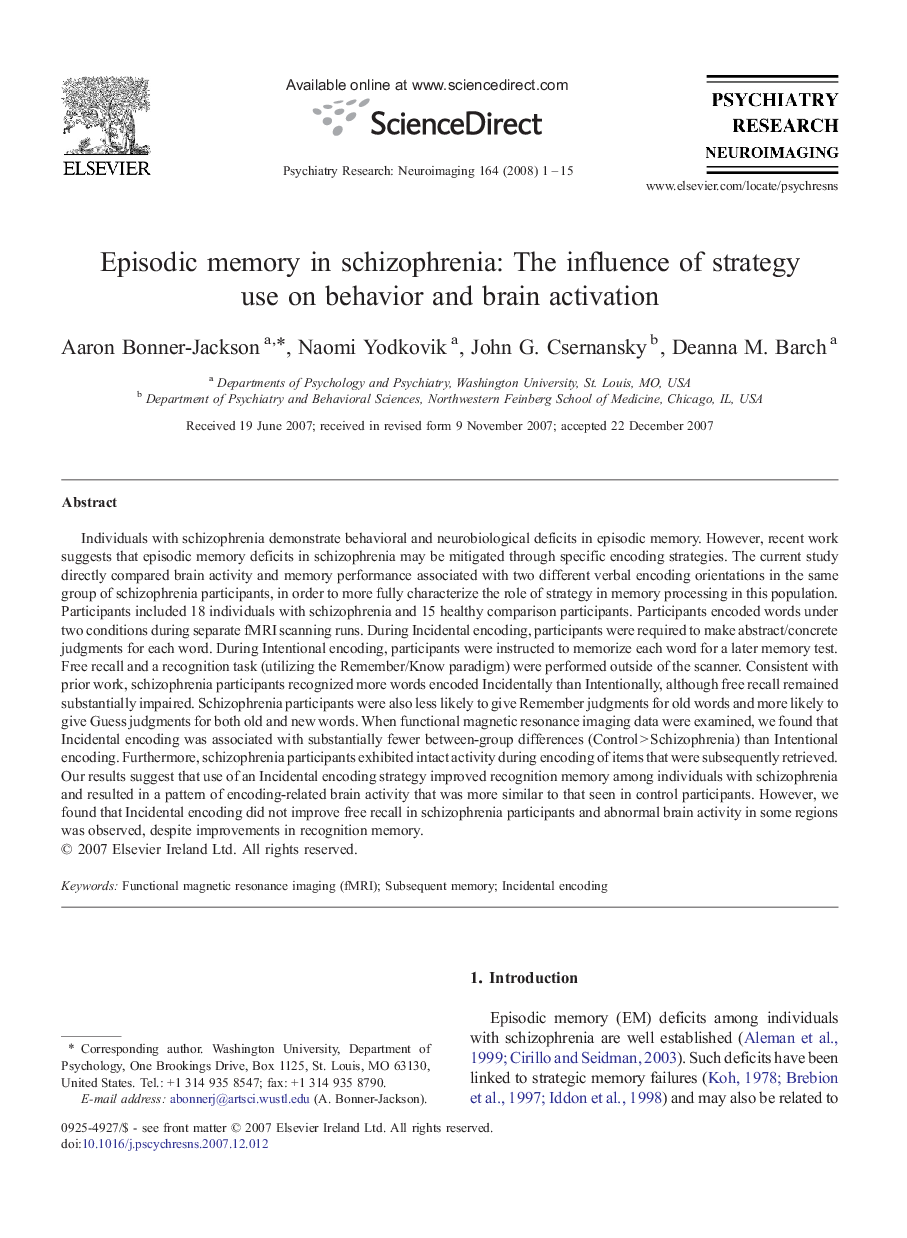| Article ID | Journal | Published Year | Pages | File Type |
|---|---|---|---|---|
| 334613 | Psychiatry Research: Neuroimaging | 2008 | 15 Pages |
Individuals with schizophrenia demonstrate behavioral and neurobiological deficits in episodic memory. However, recent work suggests that episodic memory deficits in schizophrenia may be mitigated through specific encoding strategies. The current study directly compared brain activity and memory performance associated with two different verbal encoding orientations in the same group of schizophrenia participants, in order to more fully characterize the role of strategy in memory processing in this population. Participants included 18 individuals with schizophrenia and 15 healthy comparison participants. Participants encoded words under two conditions during separate fMRI scanning runs. During Incidental encoding, participants were required to make abstract/concrete judgments for each word. During Intentional encoding, participants were instructed to memorize each word for a later memory test. Free recall and a recognition task (utilizing the Remember/Know paradigm) were performed outside of the scanner. Consistent with prior work, schizophrenia participants recognized more words encoded Incidentally than Intentionally, although free recall remained substantially impaired. Schizophrenia participants were also less likely to give Remember judgments for old words and more likely to give Guess judgments for both old and new words. When functional magnetic resonance imaging data were examined, we found that Incidental encoding was associated with substantially fewer between-group differences (Control > Schizophrenia) than Intentional encoding. Furthermore, schizophrenia participants exhibited intact activity during encoding of items that were subsequently retrieved. Our results suggest that use of an Incidental encoding strategy improved recognition memory among individuals with schizophrenia and resulted in a pattern of encoding-related brain activity that was more similar to that seen in control participants. However, we found that Incidental encoding did not improve free recall in schizophrenia participants and abnormal brain activity in some regions was observed, despite improvements in recognition memory.
